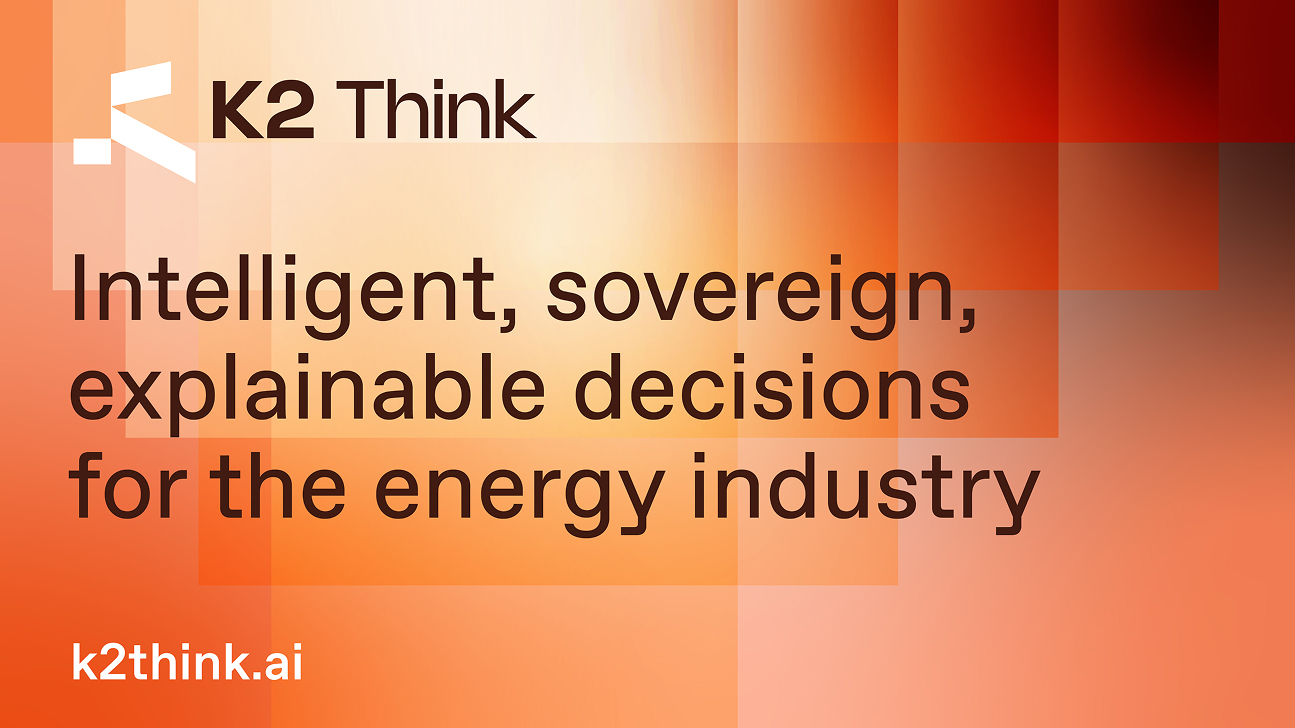Intelligent, sovereign, explainable energy decisions: powered by open-source AI reasoning
Friday, October 31, 2025

The challenge
Energy systems worldwide are under unprecedented strain. Grids are buckling under rising demand, oil and gas markets are destabilized by geopolitical conflict, and infrastructure is aging faster than it can be replaced. At the same time, governments are under pressure to decarbonize without sacrificing reliability or economic competitiveness.
This leaves grid operators, regulators, and policymakers facing thousands of high-stakes decisions every day — often with incomplete or uncertain data. Traditional AI can forecast or optimize, but most systems function as “black boxes”, offering recommendations without transparency or auditability.
In critical energy environments such as national grids, gas supply, or strategic petroleum reserves, this lack of explainable reasoning undermines trust, compliance, and adoption.
So, how can AI be made transparent and trusted enough to support decision-making across critical energy infrastructure: decisions that affect millions of people and billions of dollars?
MBZUAI’s solution
To address this challenge, researchers at MBZUAI developed K2 Think – an open-source reasoning system designed to make AI decisions interpretable and trustworthy for key sectors.
K2 Think employs long chain-of-thought supervised fine-tuning to deepen logical reasoning, paired with reinforcement learning using verifiable rewards to sharpen accuracy on multi-step reasoning, which is often required in complex energy problems.
Its agentic planning capability allows the model to break down complex challenges – such as balancing gas supply interruptions, planning reserve releases, or managing sudden grid demand surges – into smaller, auditable steps before reasoning through them.
To adapt to fast-changing scenarios, K2 Think uses advanced test-time scaling, enabling the model to plan, iterate, and self-evaluate in real time. Together, these features make AI decisions more reliable and transparent under pressure, a vital advantage in high-stakes energy contexts.
Applications at a glance
In demonstrations, K2 Think has successfully reasoned through real-world energy challenges such as:
- Strategic petroleum reserve releases under market uncertainty
- Gas supply interruptions balancing emissions, reliability, and vulnerable infrastructure
- Decommissioning and carbon capture decisions for aging oil fields
- Managing surges in electricity demand driven by AI/data center growth
- Emergency sourcing of critical spare parts, materials, and chemicals
- Investment decision-making for future energy projects under volatile conditions
What makes it different
Unlike proprietary systems, K2 Think makes both its training methods and deployment infrastructure public. This open-source approach allows organizations to host the model securely on their own servers, ensuring sovereignty over sensitive energy data while maintaining transparency and compliance with strict regulatory standards.
Technically, K2 Think shows that a compact 32B model can achieve reasoning performance comparable to much larger proprietary systems when optimized with test-time scaling. For energy operators, that means a system powerful enough to tackle complex technical challenges, but practical enough to deploy securely on sovereign infrastructure.
K2 Think for the energy industry
K2 Think’s potential is being explored with partners across the energy, sustainability, and policy innovation ecosystems. This opportunity represents a new direction for trustworthy AI in critical infrastructure. By combining explainable reasoning with open, sovereign deployment, it empowers governments and industry to make data-driven, ethically sound energy decisions.
Over the next three years, MBZUAI aims to extend K2 Think’s reasoning framework to more fields in addition to math and code, further positioning the UAE as a global hub for advanced and explainable AI.
If your organization is exploring AI solutions for sustainability, resilience, or energy governance, MBZUAI welcomes partnerships to co-develop open, auditable AI reasoning systems that advance both innovation and global trust in artificial intelligence.
Contact engagement@mbzuai.ac.ae.
- research ,
- innovation ,
- energy ,
- llm ,
- reasoning ,
- IFM ,
- K2 Think ,
- ADIPEC ,
- case study ,
Related
The search for an antidote to Byzantine attacks
A new study from MBZUAI and other institutions tackles malicious and faulty updates in privacy-preserving machine learning.....
Read MoreMBZUAI report on AI for the global south launches at India AI Impact Summit
The report identifies 12 critical research questions to guide the next decade of inclusive and equitable AI.....
- summit ,
- Report ,
- social impact ,
- equitable ,
- global south ,
- AI4GS ,
- inclusion ,
MBZUAI research initiative receives $1 million funding from Google.org
The funding will help MBZUAI's Thamar Solorio develop inclusive, high-performance AI for the region’s diverse linguistic landscape.
Read More

